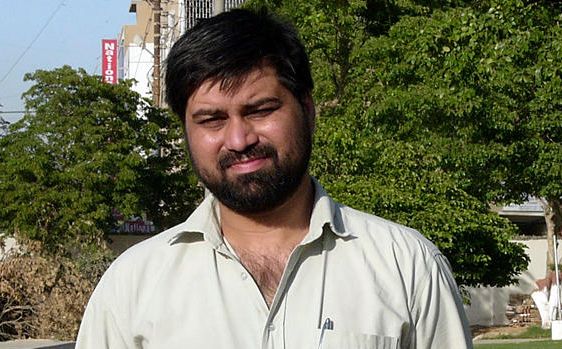The New York Times reports:
They are the Sopranos of the Afghanistan war, a ruthless crime family that built an empire out of kidnapping, extortion, smuggling, even trucking. They have trafficked in precious gems, stolen lumber and demanded protection money from businesses building roads and schools with American reconstruction funds.
They safeguard their mountainous turf by planting deadly roadside bombs and shelling remote American military bases. And they are accused by American officials of being guns for hire: a proxy force used by the Pakistani intelligence service to carry out grisly, high-profile attacks in Kabul and throughout the country.
Today, American intelligence and military officials call the crime clan known as the Haqqani network — led by a wizened militant named Jalaluddin Haqqani who has allied himself over the years with the C.I.A., Saudi Arabia’s spy service and Osama bin Laden — the most deadly insurgent group in Afghanistan. In the latest of a series of ever bolder strikes, the group staged a daylong assault on the United States Embassy in Kabul, an attack Adm. Mike Mullen, chairman of the Joint Chiefs of Staff, charged Thursday was aided by Pakistan’s military spy agency, the Directorate for Inter-Services Intelligence, or ISI. According to two American officials, cellphones used by the attackers made calls to suspected ISI operatives before the attack, although top Pakistani officials deny their government played any role.
But even as the Americans pledge revenge against the Haqqanis, and even amid a new debate in the Obama administration about how to blunt the group’s power, there is a growing belief that it could be too late. To many frustrated officials, they represent a missed opportunity with haunting consequences. Responsible for hundreds of American deaths, the Haqqanis probably will outlast the United States troops in Afghanistan and command large swaths of territory there once the shooting stops.
American military officers, who have spent years urging Washington to take action against the Haqqanis, express anger that the Obama administration has still not put the group on the State Department’s list of terrorist organizations out of concern that such a move would scuttle any chances that the group might make peace with Afghanistan’s government.
“Whoever is in power in Kabul will have to make a deal with the Haqqanis,” said Marc Sageman, a former C.I.A. officer who served in Pakistan during the Soviet-Afghan war. “It won’t be us. We’re going to leave, and those guys know it.”
The Los Angeles Times reports:
Pakistani officials warned Friday that they could jettison the United States as an ally if American officials continued to accuse Islamabad’s intelligence agency of assisting a leading Afghan Taliban group in recent attacks in Afghanistan.
Foreign Minister Hina Rabbani Khar cautioned the U.S. against airing allegations such as the blunt charge of collusion between Pakistan’s Inter-Services Intelligence agency, known as ISI, and the militant Haqqani network made Thursday by Adm. Michael G. Mullen, chairman of the Joint Chiefs of Staff, before the Senate Armed Services Committee.
“You cannot afford to alienate Pakistan; you cannot afford to alienate the Pakistani people,” Khar said in New York, speaking to a Pakistani television channel. She was in the U.S. for the U.N. General Assembly session.
Pakistani army chief Gen. Ashfaq Kayani in a statement called Mullen’s remarks “very unfortunate and not based on facts.”
Pakistani officials continued to tersely reject the allegations and challenged the U.S. to furnish evidence of ties between the country’s intelligence community and the Haqqani group.
Mullen called the Haqqani network “a veritable arm” of the ISI and said the intelligence agency helped Haqqani militants during attacks Sept. 13 on the U.S. Embassy in Kabul as well as a truck bomb blast in Wardak province three days earlier that injured 77 American troops.

